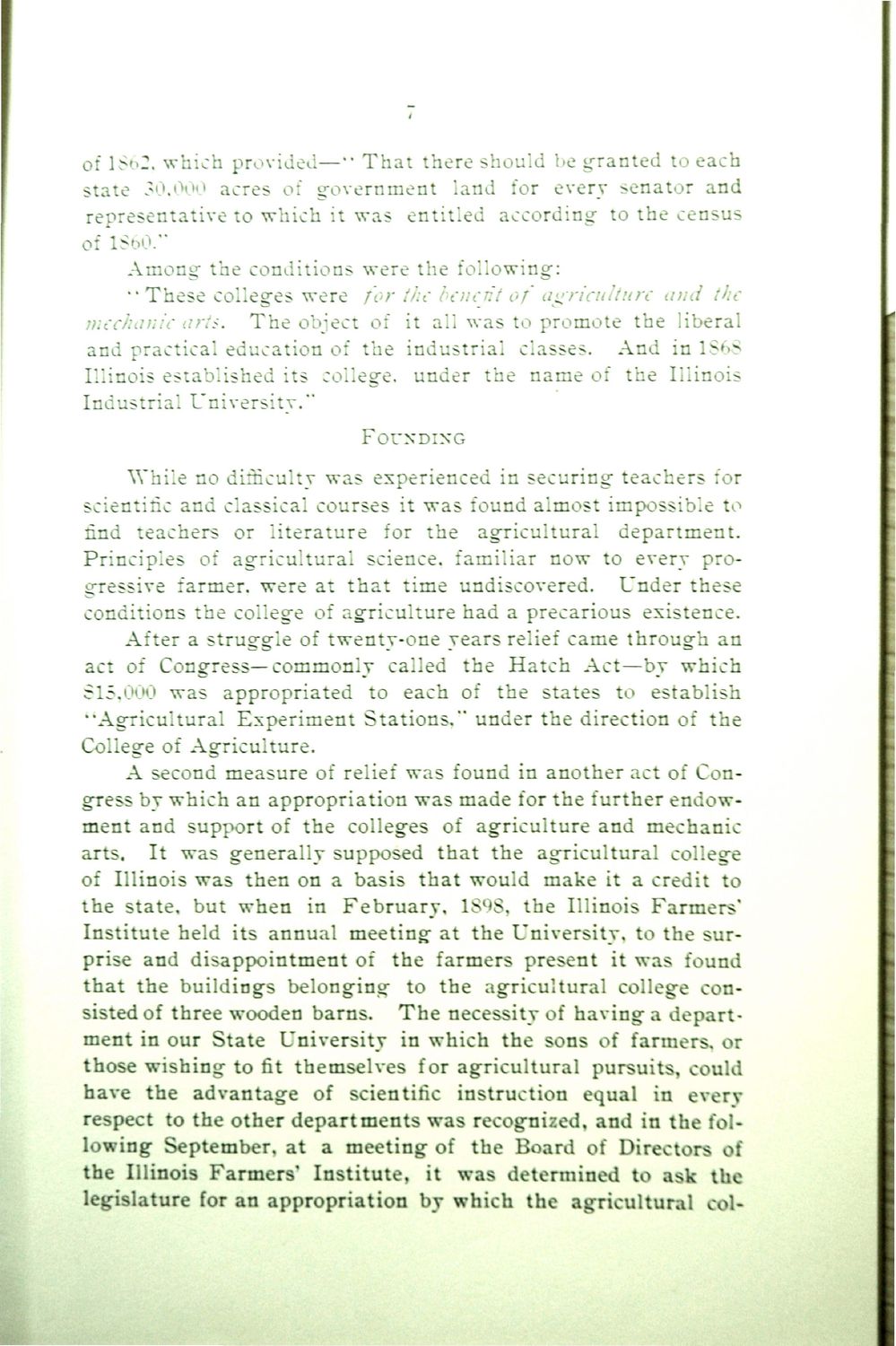| |
| |
Caption: Dedication - Ag Building
This is a reduced-resolution page image for fast online browsing.

EXTRACTED TEXT FROM PAGE:
/ of 1862, which provided—M That there should be granted to each state 30,000 acres of government land for every senator and representative to which it was entitled according to the census of 1860." Among the conditions were the following: 11 These colleges were for the benefit of agriculture and the mechanic arts. The object of it all was to promote the liberal and practical education of the industrial classes. And in 1S68 Illinois established its college, under the name of the Illinois Industrial University." FOUNDING While no difficulty was experienced in securing teachers for scientific and classical courses it was found almost impossible to find teachers or literature for the agricultural department. Principles of agricultural science, familiar now to every progressive farmer, were at that time undiscovered. Under these conditions the college of agriculture had a precarious existence. After a struggle of twenty-one years relief came through an act of Congress—commonly called the Hatch Act—by which $15,000 was appropriated to each of the states to establish "Agricultural Experiment Stations," under the direction of the College of Agriculture. A second measure of relief was found in another act of Congress by which an appropriation was made for the further endowment and support of the colleges of agriculture and mechanic arts. It was generally supposed that the agricultural college of Illinois was then on a basis that would make it a credit to the state, but when in February, 189S, the Illinois Farmers* Institute held its annual meeting at the University, to the surprise and disappointment of the farmers present it was found that the buildings belonging1 to the agricultural college consisted of three wooden barns. The necessity of having a department in our State University in which the sons of farmers, or those wishing to fit themselves for agricultural pursuits, could have the advantage of scientific instruction equal in every respect to the other departments was recognized, and in the following September, at a meeting of the Board of Directors of the Illinois Farmers' Institute, it was determined to ask the legislature for an appropriation by which the agricultural col*
| |